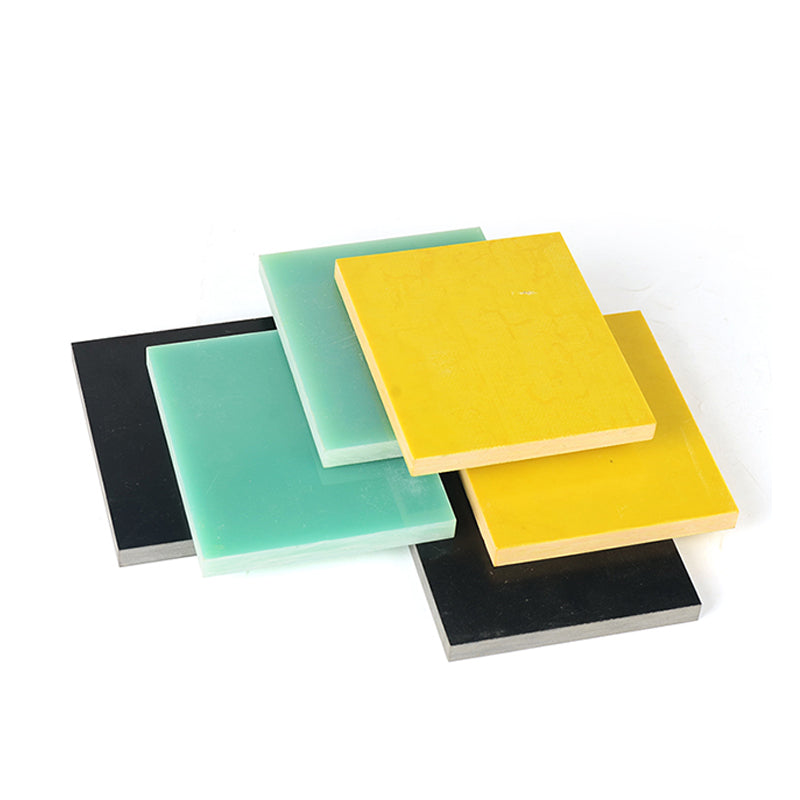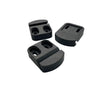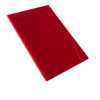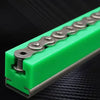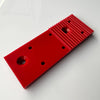Maximizing Equipment Longevity with Wear Resistant Nylon
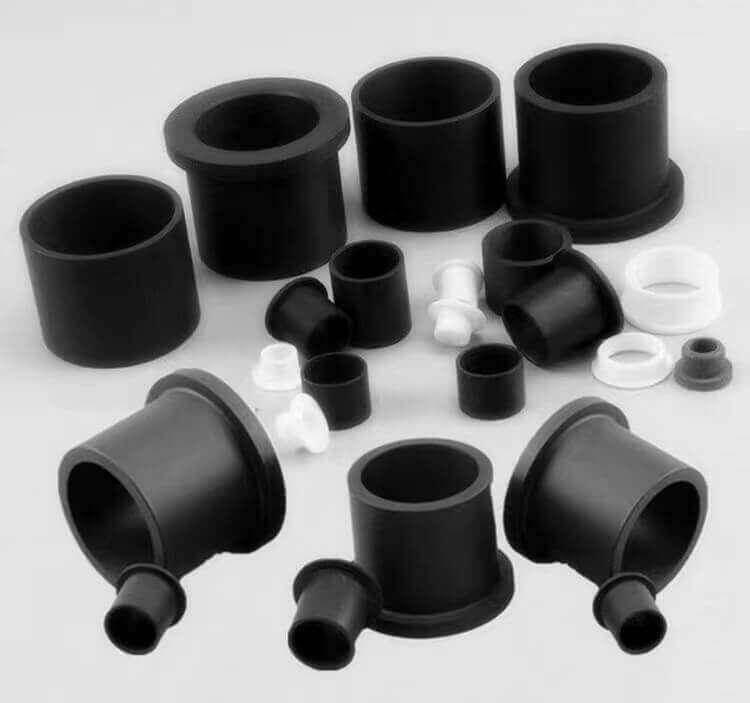
In manufacturing and industrial facilities, equipment longevity is crucial for minimizing costs and maximizing uptime. But high wear zones from constant abrasion, friction, and impacts can degrade components, shortening service life. Selecting the optimal material is key to extending longevity in abrasion prone regions. This is where nylon’s unique properties make it the top performer under intensive wear conditions.

Why Nylon Excels in High Abrasion Zones
Nylon has distinct advantages that enable it to withstand high wear applications better than metals, rubber, or other plastics:
Strength and Durability Under Constant Friction
Nylon engineering grades like nylon 6/6 exhibit very high tensile and flexural strength. This nylon for high abrasion areas maintains mechanical properties despite ongoing surface wear. Testing shows nylon retains over half its strength after 30,000 cycles of sandpaper abrasion.
The polymer chains in nylon also resist cracking or deforming under strain. Parts made of wear resistant nylon stand up to scuffing, friction and repetitive impacts without failing. This durability saves on maintenance and replacements compared to materials like polypropylene.

Withstands Impacts Without Cracking
Sudden high velocity collisions from debris can shatter more brittle materials. But nylon for high impact machinery absorbs these forces through flex and deformation instead of fracturing. This is partly due to nylon’s low density cushioning blows.
Nylon’s resilience allows it to repeatedly take shocks and impacts in stride, making it ideal for equipment components subject to such conditions.
Low Coefficient of Friction Reduces Wear Rate
The chemistry of nylon creates a naturally slick surface with one of the lowest coefficients of friction among plastics. This allows parts to slide smoothly rather than adhere when in contact under pressure. The result is less energy wasted from friction during motion.
By minimizing resistance between mating surfaces, nylon components experience less surface degradation over time. This saves on wear-related replacements.

Heat Resistance Maintains Material Integrity
The high melting point of quality nylon grades allows them to perform in environments over 392°F (200°C) without loss of strength. This heat resistance prevents premature material failure, distortion, or cracking when used in high friction zones. The material retains integrity rather than degrading from frictional heat buildup.
Custom Nylon Components for Wear Intensive Applications
These advantages make nylon the premier choice for custom fabrications used in the following common high wear situations:
Bushings, Bearings and Washers for Sliding Contact
Bushing and bearings enable rotating shafts to run smoothly within a housing. Nylon is ideal for the tight interface between these components due to its vibration dampening, low friction, and dimensional stability. Custom nylon bushings for high wear sliding areas outlast bronze, composite, or babbitt bearings.
Nylon washers also make excellent low friction spacers and wear surfaces between rotating parts. They cushion and dampen vibrations for quieter performance.
Gears That Intermesh Under Load
When gear teeth mesh, tremendous pressure and friction occurs at the contact point. Nylon stands up to these demanding conditions while maintaining smooth engagement. Nylon parts for high impact machinery like plastic spur gears exhibit much greater abrasion resistance than equivalent acetal gears.
The stiffness of nylon also prevents excessive deflection of gear teeth under load compared to materials like polypropylene. This reduces backlash and noise issues.
Rollers and Pads in High Friction Zones
Nylon is often extruded or molded into rollers or sliding pads for moving heavy loads under friction. As an example, nylon conveyor rollers minimize friction while handling abrasive or highly stressful loads. Nylon skid pads inserted between surfaces provide wear resistance when dragging or sliding objects.
For any components interfacing under load, nylon for high friction zones minimizes wear for smoother operation and longer part lifetimes.

Specialized Manufacturing for Wear Resistant Nylon Parts
To produce nylon components with the highest durability, specialized fabrication processes are used:
Injection Molding Complex Nylon Geometries
Injection molding creates complex plastic shapes by shooting melted nylon into precision machined steel molds. This enables forming intricate components not easily machined. Inserts and reinforcements can also be molded in.
For severe wear environments, injection molded nylon for abrasion prone regions allows optimizing designs to eliminate stress points. Streamlined geometries improve life compared to CNC machining.
Extruding Long Nylon Rods and Sheets
Extrusion pushes melted nylon through a die opening to create long lengths of material with a constant profile. This efficient process can produce wear resistant rods, sheets, tubes, and other profiles.
Extruded nylon shapes for friction intensive applications supply an economical source of stock material for fabrication into rollers, bushings, bearings and more. No machining is required on extruded blanks.
Precision CNC Machining of Nylon Parts
For high accuracy, CNC machines can shape nylon stock into components with very tight tolerances. This achieves close fits needed for smooth sliding contact and uniform pressure distribution in wear applications. The smooth surface finish from machining also minimizes friction and particle adhesion.
Testing Fabrications to Validate Expected Life

Proof-of-concept testing validates a chosen nylon grade and design will survive the real-world operating environment. Accelerated wear testing exposes parts to exaggerated conditions beyond normal use. Performance is then extrapolated to predict service lifetimes.
For extending equipment life in high wear trouble zones, specifying the right nylon can pay dividends. Numerous material grades and manufacturing methods exist for maximizing abrasion resistance based on operating loads and friction intensity. With expertise in wear-resistant plastics, custom nylon components can withstand virtually any punishing industrial environment. The result is enhanced equipment longevity, reliability and productivity.

-
Posted in
abrasion resistance, commercial applications, equipment longevity, industrial applications, wear resistance, wear-resistant nylon

